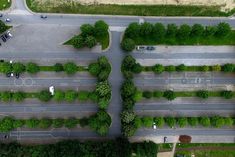Soil protection needs laws
The “International Soil Law and Governance Conference” took place on 20 October 2022, an online event organized by the Institute of Law of the BOKU together with Clim:Law Graz, the Research Center for Climate Change Law of the University of Graz and the German Environment Agency (UBA). After welcoming remarks from Christoph Bezemek (University of Graz) and Daniel Ennöckl (BOKU) and a video message by the Austrian Minister for Climate Protection, Leonore Gewessler, the conference program started with a panel discussion titled “Soils: future challenges and good governance”.
Patricia Kameri (United Nations Environment Programme [UNEP]), Dirk Messner (UBA), Jiayi Zhou (Stockholm International Peace Research Institute [SIPRI]), Andrea Vettori (European Commission), Robert Wabunoha (UNEP) and Li Lifeng (Food and Agriculture Organization of the United Nations [FAO]) discussed the importance of soil conservation in times of multiple global crises. It is essential, they said, that soil management is designed to be sustainable and preventive, and that measures are not taken only when catastrophe strikes. “Especially in the climate crisis, we realize that soil is a finite resource that we urgently need, among others to protect biodiversity”, said Patricia Kameri. Andrea Vettori reported cooperations with stakeholders and experts at the EU level to achieve a change in both energy and land use.
The panel agreed that the major challenge is to translate the existing knowledge about the necessary changes into action. The appropriate legal measures must be set at global, regional and local levels. It is a mandate of politics to protect soil with laws, heard the nearly 100 online attendees, some of whom actively contributed to the discussion.
After the lunch break, the panel on “Best practices and innovative regulatory approaches” addressed current challenges and solution strategies for preserving and restoring healthy soil in different regions of the world. Harald Ginzky (UBA) described soil sealing as the biggest factor of soil degradation in Germany and defined too little regulation and no integrated competence of soil protection authorities as key problems. Pamela Towela Sambo (University of Zambia) raised the distribution of land ownership as the main driver of soil degradation in Zambia. Gernot Stöglehner (BOKU) suggested that more practical restrictions should be used in Austria's spatial planning. Qin Tianbao (Wuhan University) reported on the overuse and intensification of agriculture as a central problem in China.
Christine Stumpp (BOKU) then addressed detailed soil management measures to adapt to climate change in the panel “Sustainable soil management and climate”, moderated by Nikolaus Handig (BOKU). Herwig Ranner (European Commission) described in detail the implementation of environmental protection measures at the international level and then summed up: “It's not that easy”.
The final panel of the day was devoted to “Soil, international cooperation and food security” and chaired by Harald Ginzky. According to Natalia Rodríguez Eugenio (FAO), soil must be kept healthy as a basis for life and as a source of food. Francis Tetteh (Council for Scientific and Industrial Research) saw the most important challenge in passing on information and knowledge about sustainable soil management translating it into legislation. A conclusion, which Oliver Ruppel (Clim:Law Graz) underlined in his words of farewell to the audience.

